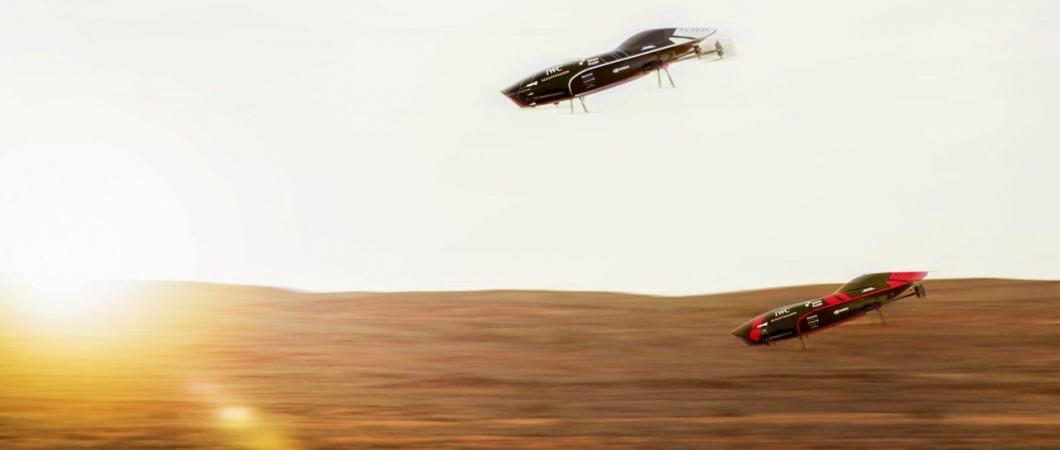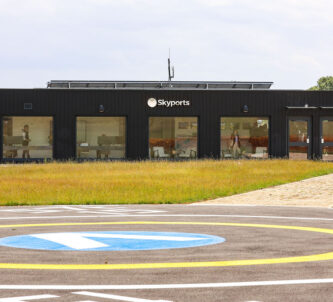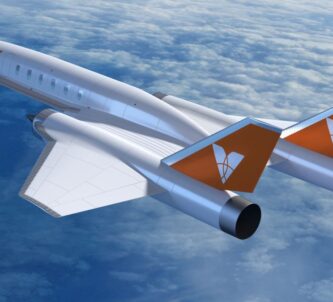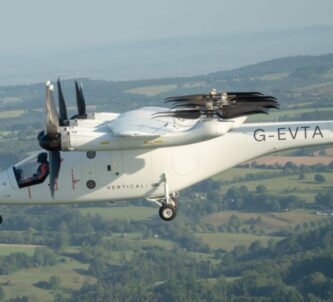Last week saw the very first competitive race for the new sport of flying car racing or eVTOL (Electric Vertical Take-off & Landing) racing.
The landmark event, held in the Flinders Ranges of South Australia, was a simple drag race between two remotely piloted ‘Airspeeders’, but soon would-be Anakin Skywalkers will be taking to the air in full-scale racing machines.
The drag race was a test for the forthcoming EXA remotely-piloted Grand Prix season, which in turn will lead to the crewed electric flying car racing series. Two teams drag raced their Airspeeders along a 400m course at over 100 km/h (62 mph) and heights of 10m (32 ft) above the ground.
The drag-race format was chosen to demonstrate the performance and safety technologies that underpin the sport. In particular, the ‘Virtual Forcefield’ around the Airspeeders created by a suite of LiDAR and RADAR powered safety systems that allow close but safe racing. This will be heavily relied upon for full-grid circuit racing.
What’s really interesting about the future for this sport is that flying car racing does not require the same physical infrastructure as legacy motorsport, which means races can be held in wilderness spaces around the world with minimal ecological impact.
This first drag-race forced the teams to adapt strategy in line with wind and dust conditions in the desert location. As races play out in varying conditions including over ice, over sea, deserts and even forest locations, mastery of external factors add a compelling tactical layer to the sport.
So, if the races are held in remote locations, how will you get to see it? Fans from around the world will be able to watch via global broadcasts with coverage enhanced by technology that communicates the virtual tracks and race telemetry data projected directly to pilots through augmented reality.
The new sport is being pioneered by Alauda Aeronautics. The engineering team is drawn from some of the biggest names in motorsport, performance automotive and aviation including Brabham, Boeing, Ferrari, McLaren and Jaguar.
Alauda is poised to announce the world’s first electric flying car Grand Prix calendar in 2022 under the banner of the EXA Series. These remotely piloted races will serve as a vital feeder series for the forthcoming crewed Airspeeder Grand Prixs.
UPDATE (10/03/2022): F1, Formula E and eSports star Bruno Senna has joined Airspeeder to become one of the world’s first electric flying car racing pilots. He will also help with Airspeeder’s technical and sporting development.







